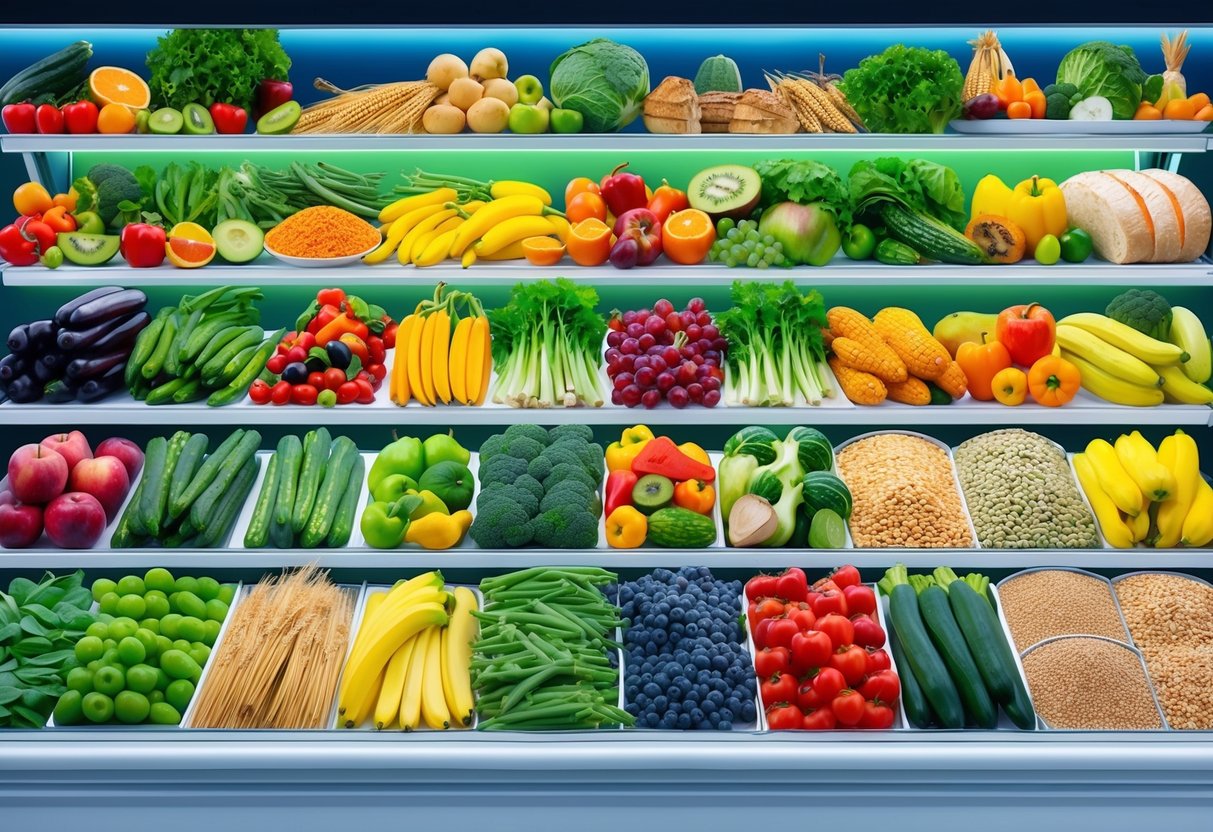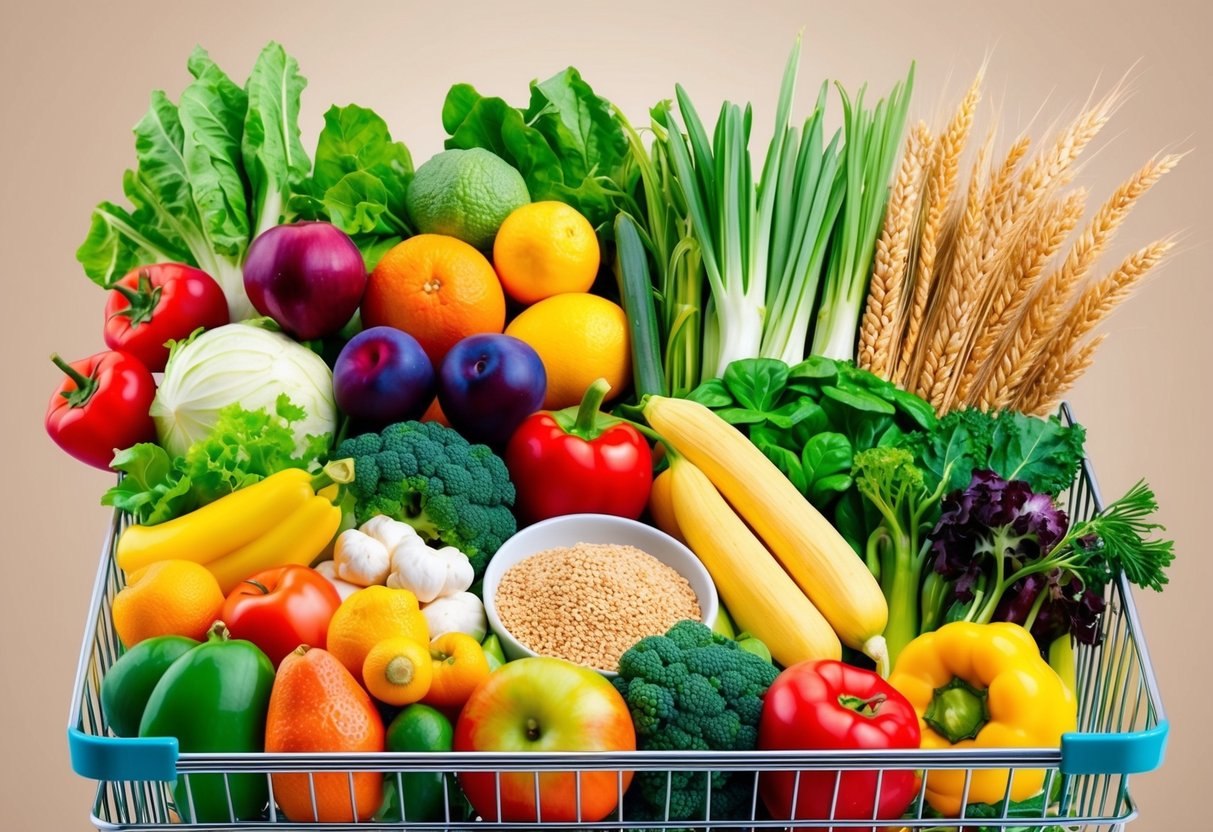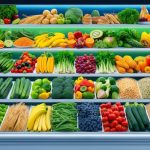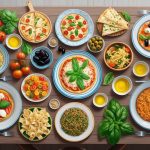
Healthy Fats for Everyday Meals
Choosing the right types of fats can support heart health, provide energy, and help absorb important nutrients. Some fats are more beneficial than others, and understanding which foods to add is crucial for a balanced, nutritious diet.
Best Sources of Unsaturated Fat
Unsaturated fats, known for their positive effects on cholesterol and heart health, can be sourced from a variety of everyday foods. Extra virgin olive oil is a staple choice; it is widely used in cooking and salad dressings for its monounsaturated fat content.
Avocados deliver beneficial fats as well as essential vitamins and minerals. Fatty fish, such as salmon, sardines, and mackerel, are high in omega-3 fatty acids that contribute to heart and brain health (read more).
Nuts like almonds, walnuts, and pistachios offer protein along with unsaturated fats, making them a convenient snack or meal addition. Seeds, including chia and flaxseed, are excellent for smoothies or oatmeal and provide a plant-based source of healthy fats.
The following table highlights common foods high in unsaturated fat:
| Food | Fat Type | Example Benefits |
|---|---|---|
| Olive oil | Monounsaturated | Lowers bad cholesterol |
| Avocado | Monounsaturated | Rich in fiber, vitamins |
| Salmon | Polyunsaturated (Omega-3) | Brain health |
| Walnuts | Polyunsaturated | Heart protection |
| Chia seeds | Polyunsaturated | High in fiber, omega-3 |
Balancing Fats in Your Diet
Achieving a healthy fat balance involves choosing the right foods while keeping saturated and trans fat low. While some saturated fat in moderation may be acceptable, excessive intake can increase the risk of heart disease.
Foods high in saturated fat, such as butter, fatty cuts of red meat, and processed snacks, should be eaten sparingly. Trans fats, often found in partially hydrogenated oils and processed foods, offer no health benefits and raise cholesterol.
It’s best to check nutrition labels and avoid foods containing these fats. Dietary guidelines suggest prioritizing healthy fats by focusing on nuts, seeds, fish, and plant-based oils.
For meal planning, try replacing high-saturated fat items with alternatives like olive oil or mashed avocado for spreads (see more healthy fats). Swapping fried foods for baked or grilled options can further lower unhealthy fat intake.
Stocking Up on Convenient Healthy Foods

Choosing healthy canned goods and frozen foods can make meal prep easier, reduce food waste, and ensure access to nutritious options at any time. High-quality grocery staples can help create balanced meals quickly, supporting busy lifestyles without sacrificing health.
Choosing Nutritious Canned Goods
Canned goods are a reliable way to stock up on shelf-stable nutrients. Beans like black beans, chickpeas, and kidney beans are excellent canned choices—they are rich in protein, fiber, iron, and potassium.
Canned tomatoes add vitamins A and C, making them useful for sauces and soups. For vegetables, look for canned corn, peas, and green beans with no added salt or sugar.
Low-sodium canned salmon and tuna offer omega-3 fatty acids and lean protein. It’s best to check labels and opt for those marked “low sodium” or “no salt added” whenever possible.
Some healthy soups can be used for quick meals, but watch for high sodium content. Rinsing canned beans and vegetables under water helps reduce excess sodium and preserve overall nutritional value.
Canned fruit packed in 100% juice, not syrup, can be a fast, vitamin-rich snack.
Best Frozen Foods for Nutrition
Frozen foods preserve much of their nutritional value and provide flexibility for healthy meal planning. Frozen vegetables such as broccoli, spinach, green beans, and mixed veggie blends are harvested at peak ripeness and flash-frozen to retain vitamins and minerals.
These are convenient for stir-fries, soups, and side dishes. Frozen fruits like berries, mango, and peaches are ideal for smoothies and desserts.
They typically contain no added sugars and provide antioxidants, fiber, and vitamin C. For protein, frozen chicken breast, fish fillets, or veggie burgers offer easy ways to prepare nutritious dinners.
Some frozen meals labeled as healthy options may also fit busy schedules, but it’s important to compare labels and select choices with less sodium and fewer artificial ingredients, as suggested by nutrition experts.
Frozen whole grains like brown rice or quinoa can quickly enhance meal variety and provide long-lasting energy.



